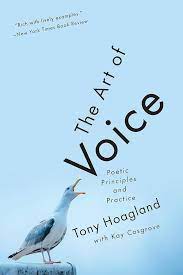
New to me is Matthew Rohrer, a New York City poet who has a whiff of the old New York School, given his casual verse and non sequiturs (minus Lana Turner and the season of falling). I just finished his collection, Surrounded by Friends. Here is a review, as posted on GoodReads, everyone’s favorite Amazon-owned reading site to revile:
If you write poetry, you read poetry. What’s weird is how reading some poets’ work inspires you with ideas of your own, while reading others inspires…nothing. It doesn’t mean the poet is BAD if they do not inspire — in fact, they can be depressingly talented — but the inspirational ones are often writing approachable stuff like a particularly docile and friendly horse happy to come over to the fence and munch carrot or cube from your hand.
Yes, yes. It all looks so simple, kind of like imitating Hemingway in short story writing. Then, when you go there, you see that your work is very un-Hemingway, so maybe there’s some hidden complexity in the simplicity’s weeds. That happens with the poets that inspire, too, but hey, at least it gets words churning in the brain and marching on the paper (or screen).
As you might have guessed, Matthew Rohrer is one of these approachable guys. Short poems. A bit off-the-wall poems. A little this, a little that. Some non sequiturs thrown in. Unusual word pairings. Thoughts local and worldly. Lines three to six words short. By way of two examples, I give you these:
Where I Lived
I live up here,
you live down there,
he said, touching first
my forehead then
my sternum; come up
and see me sometime,
and flicked my nose
as he said this,
traveling up from where
I lived to where he lived.
He also said, every time
our family saddled up
to depart, see you in the
funny papers, which was
another place he mistakenly
believed I lived, when I lived,
as everyone knew, in an
enormous mitten with a beetle,
a mouse, a hedgehog, a hare,
a badger, and other increasingly
large creatures of the forest,
and waited there for a stranger’s
kiss to set me free. His own wife,
my grandmother, knitted it for me.
Autumn Glory
Looking at old pictures
I’m on fire
don’t show your dad
how it says Legalize it
on the other side of the hill
now we are older
it’s like that whole place
shifted out from under us
the self is the constant
past which time flies
until a cloud melts
through the wall
it is a translation
of an abstract painting
into a feeling
I don’t even have
I have a slight fever
while feeding the kids
and in a dream
they eat candy
on top of me
and when I wake up
autumn glory and candy wrappers





